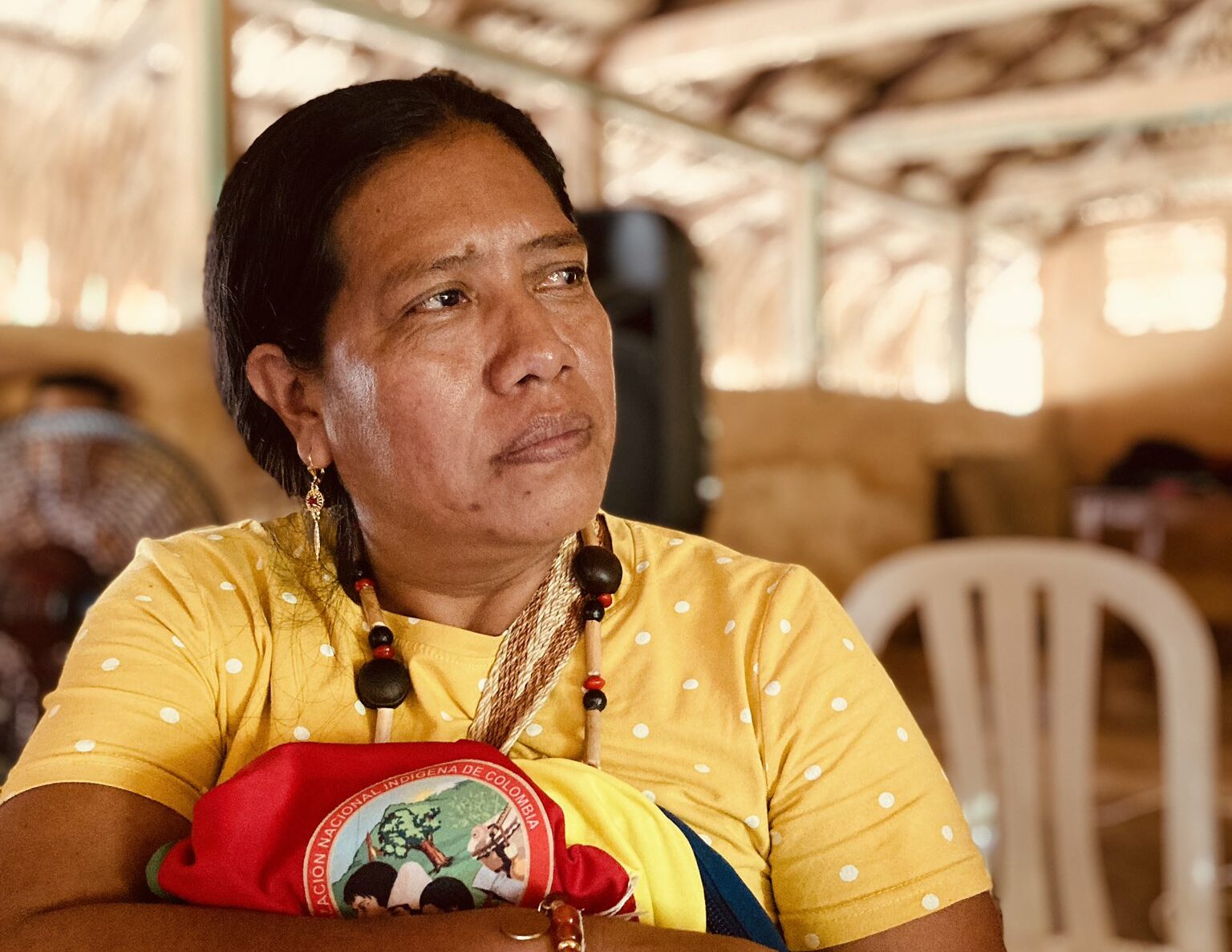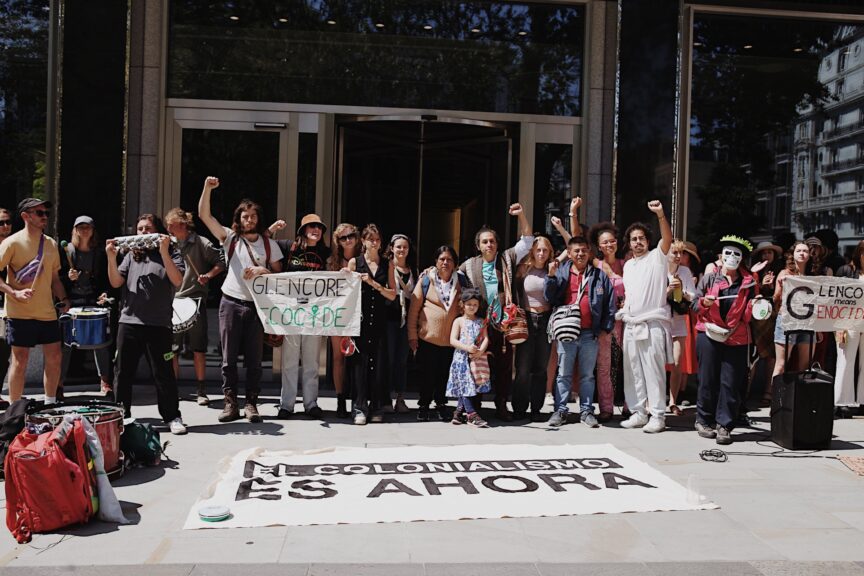This Indigenous Leader Survived Colombia’s Death Squads. Now She Wants Justice
‘We felt the shots.’
by Maozya Murray
7 June 2023

“We were already lying down when we felt the shots, firing from all sides. They didn’t get into the house, they just surrounded the house and fired shots at us.”
On 4 March, Esneda Saavedra Restrepo, the first female governor of the Yukpa indigenous people, returned from a meeting denouncing the Anglo-Swiss mining giant Glencore to the Serranía del Perijá – a mountain range between Colombia and Venezuela – when armed men opened fire on her family. Now she’s come to the UK to demand justice.
Saavedra, an advisor of the National Indigenous Organisation of Colombia (ONIC), is at the forefront of the struggle against Glencore, whose operations are driving the Yukpa people towards what she describes as “imminent physical and cultural extinction”.
“We don’t know who ordered the attack, but it’s easy to work out. It’s the leadership of mining corporations who have worked with paramilitaries to kill indigenous people resisting extractivism for decades,” says Juan Pablo Gutiérrez, international delegate of ONIC.
According to a report by Dutch peace organisation PAX, Prodeco Group (a wholly-owned Glencore subsidiary) financed paramilitaries responsible for 2,600 targeted assassinations, 500 killings and 59,000 forced displacements between 1996 and 2006. While links between western multinationals and paramilitaries have long been documented, corporations such as Glencore evade accountability through “hands-off management” of subsidiaries and damage control after exposure.
For Saavedra and the growing Yukpa Solidarity Network, however, this can’t be allowed to continue. On 4 June, demonstrators gathered outside Glencore’s London headquarters to highlight the corporation’s human rights violations and ecocide and to demand meaningful reparations for the Yukpa people.

The UK is complicit in all this, says Gutiérrez. “Investors here in the UK invest in Glencore, Glencore destroys our territory, and the destruction of our territory translates into the climate crisis.”
Gutiérrez clarifies that the Yukpa’s aim by visiting the UK and other European countries is to raise awareness about their struggle. “If people don’t know what’s going on, they don’t mobilise, and it is only after people are mobilised that we can begin to target the management and shareholders of Glencore who hold the power.”
The campaign’s focus on shareholders has already yielded results. “The French government issued a warning to French banks BNP Paribas and Credit Agricole for financing a multinational that’s violating human rights,” says Gutiérrez. Moreover, during Glencore’s AGM in Switzerland, protests prompted 30% of shareholders to vote against Glencore’s climate agenda, while 29% advocated reducing coal production, triggering a consultation process under UK law.
But Gutiérrez is keen to emphasise that while “being here in the UK is about resisting Glencore, this is [only] one component of the many problems facing the Yukpa people.”
The Yukpa – a semi-nomadic people – have endured centuries of oppression by European colonisers and now western multinationals, leading to the systematic destruction and dispossession of their ancestral lands. Today, most Yukpa communities are crammed together in the highest, most arid part of the Serranía del Perijá.
Saavedra describes how the fight began as a process to recover the territory. “Glencore arrived in 1992, then mining started to arrive. Our struggle and the resistance were in response to armed groups entering our territory and taking over more and more,” she says. “I lost my dad when I was eight years old […] because of the conflict.”
Gutiérrez explains that mega-mining is hugely damaging to the Yukpa. Air pollution, loss of ancestral lands and water diversion have led to widespread sickness and death – including the deaths of 42 children between 2018 and 2019 in the community of which Saavedra is governor.
Gutiérrez stresses that Yupka leaders “haven’t come to ask a favour” from those in the UK – they are “asking for you [UK citizens] to take responsibility for the decisions your representatives are making, and for companies like Glencore that are based in your country”.
“We don’t have the privilege to mobilise, to make noise,” he continues. “If we do, they kill us.”
*All quotes have been translated from Spanish by the author.
Maozya Murray is a writer based in Brighton.


